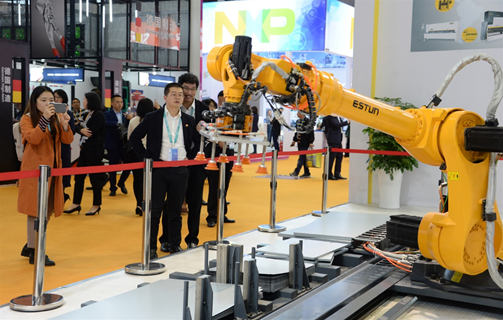Chinese version of Nasdaq launched to reform capital market
Regulations on the science and technology innovation board are released by the China Securities Regulatory Commission (CSRC) on its official website, March 1, 2019. (Photo: official website of CSRC)
China's top securities regulator on Friday (March 1st) released regulations on the science and technology (sci-tech) innovation board, a major step the country takes to reform its capital market.
The regulations, to be implemented on a trial basis, took effect on Friday, according to the China Securities Regulatory Commission (CSRC).
The launch of the sci-tech innovation board, which pilots registration-based initial public offerings (IPO) system, is designed to boost financial reform and development of the high-tech sector.
Some analysts believed that the new board launched at the Shanghai Stock Exchange (SSE) has the potential to be Chinese version of Nasdaq.
The newly-released orders clarified the regulation rules for registration and supervision with 81 clauses of eight chapters and 36 clauses of nine chapters respectively.
More detailed supporting requirements, rules, guidelines and mechanisms have also been published by SSE and other involving authorities.
The new board will focus on companies in high-tech and strategically emerging sectors such as new generation information technology, advanced equipment, new materials and energy, and biomedicine, according to the CSRC.

An industrial robot is showing the visitors its automation work at the first China International Import Expo (CIIE) in Shanghai on November 5, 2018. (Photo by Hu Qingming from People’s Daily Online)
Compared with the current A-share, the sci-tech innovation board allows companies that haven't generated a profit file for an IPO, as well as dual-class ownership companies, variable interest entities and red-chip companies.
“It is not simply a new board but institutional innovation,” Yi Huiman, newly-appointed chairman of the CSRC, stressed to a recent press conference.
“More importantly, it is an institutional innovation based on a market and rule-oriented principle,” he said, adding that such innovation covers all chains including share offerings, listing, trading, information discourse and de-listing.
Analysts also define the establishment of the board and the experiment with the registration-based system as a test field China chooses to reform and innovate its capital market.
Industry insiders believed that the launch of the new board will accelerate China’s sci-tech progress and innovation, as a strong sic-tech strength is prerequisite for any country to secure growth.
As the world’s second largest economy, China also needs the sci-tech strength to back up its high-quality development, they added.
According to the released guidelines, the eligible companies would be reviewed in six months after they file applications for listing on the board.
It means that several months later, a batch of growing innovative companies with hard core technologies will be approved to get listed and shine in the market, they noted.
Analysts added that the board will also help the investors find out the companies with hard core technologies, and weed out those tech firms with poor performance.


 +86-13460933678
+86-13460933678